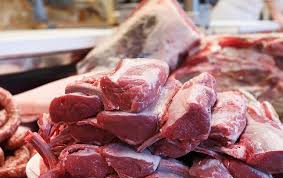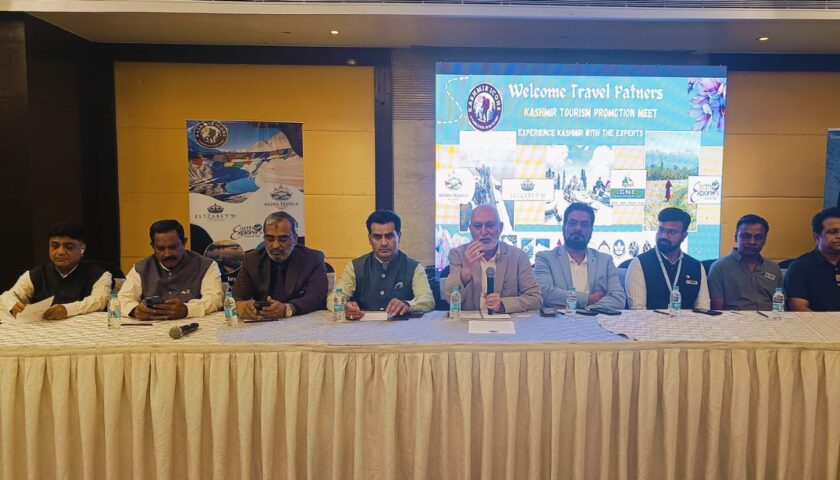Kashmir Tightens Meat Labeling Rules: Transparency Now Mandatory
By: Javid Amin | 04 October 2025
Transparency on the Table: Kashmir’s New Meat Labeling Law
Kashmir’s food regulators have drawn a firm line in the sand. Beginning August 2025, every kilogram of dressed meat entering the Valley — whether mutton or chicken — must come with a full, verifiable label. The Jammu & Kashmir Food and Drug Administration (FDA) has made it clear: no label, no sale.
The move follows a storm of public concern triggered by the seizure of 1,200 kilograms of rotten meat in Srinagar earlier this year — a scandal that not only raised hygiene alarms but also sparked debate over halal compliance and consumer trust.
“We’re not banning meat. We’re enforcing transparency,” clarified Smita Sethi, FDA Commissioner.
“Consumers must know what they’re buying — and whether it aligns with their faith, safety, and expectations.”
What’s Changing: The New Meat Labeling Rulebook
The FDA’s directive now mandates detailed labeling on every packaged or imported meat product. The rule applies equally to retailers, wholesalers, restaurants, cold storage operators, and e-commerce platforms that sell meat in Jammu & Kashmir.
Every package must display:
-
✅ Product Name: (e.g., dressed mutton, frozen chicken)
-
✅ Source of Origin: farm, district, or supplier name
-
✅ Processing Details: slaughter date, method, and hygiene certification
-
✅ Batch or Lot Number
-
✅ Manufacture & Expiry Dates
-
✅ Storage Conditions: chilled (0°C–4°C) or frozen (-18°C or below)
-
✅ Manufacturer or Importer Details
-
✅ FSSAI License Number & Logo
-
✅ Non-Vegetarian Symbol
-
✅ Halal Certification (if applicable)
Unlabeled or improperly labeled meat will not be permitted for sale, regardless of the seller’s size or source.
Strict Prohibitions: What Vendors Can No Longer Do
The new rules leave little room for shortcuts.
Prohibited Practices Include:
-
❌ Selling unpackaged or unlabeled meat
-
❌ Transporting meat without traceable documentation
-
❌ False or misleading halal claims
-
❌ Improper storage — without temperature monitoring or hygiene certification
Violations will attract penalties under the Food Safety and Standards Act (2006).
Authorities have already registered FIR No. 48/25 against vendors caught selling spoiled meat in Srinagar, sending a clear message that non-compliance will not be tolerated.
Faith & Food: Halal Compliance at the Core
The FDA’s announcement follows appeals from religious organizations, including the Muttahida Majlis-e-Ulama (MMU), which questioned whether meat imported from outside Jammu & Kashmir adhered to halal slaughtering standards.
For many Kashmiri consumers, halal is not just a dietary preference—it’s a matter of faith. The lack of clarity around meat origin and certification had led to growing unease.
“The new rules ensure that every consumer, regardless of where they shop, can verify whether the meat they purchase is truly halal,” said an MMU spokesperson.
“It’s about protecting both faith and food integrity.”
Cold Truths: New Temperature & Storage Standards
The FDA has also issued strict cold-chain management requirements for all meat handlers.
Storage Norms:
-
🥩 Fresh Meat: Must be sold immediately after slaughter
-
🧊 Chilled Meat: 0°C to 4°C — usable for up to 4 days
-
❄️ Frozen Meat: -18°C or lower — safe for up to 12 months
To maintain safety, vendors must install calibrated temperature monitoring systems, particularly in transport vehicles, storage units, and market freezers.
Officials emphasize that this is not just about regulation—it’s about building public confidence in a system that has long operated in the shadows.
On-Ground Action: Awareness Drives & Public Accountability
The FDA has announced district-wide awareness campaigns across Srinagar, Anantnag, Baramulla, and Jammu to educate both vendors and consumers about the new standards.
Consumers are encouraged to:
-
🧾 Check labels before buying
-
⚠️ Report unlabeled or suspicious meat
-
🕌 Demand halal certification when applicable
The department will also distribute public notices and conduct workshops with butchers, meat transporters, and restaurant owners, helping them transition smoothly into compliance.
“We’re combining regulation with education,” said a senior FDA officer.
“Our goal isn’t to punish but to protect. The days of anonymous meat in Kashmir’s markets are over.”
Economic & Social Impact: From Slaughterhouse to Supper
The meat industry in Kashmir is vast and economically vital, employing thousands—from small butchers in Downtown Srinagar to wholesale distributors handling imports from Delhi, Punjab, and Rajasthan.
However, for years, the trade has faced challenges: untraceable sourcing, unsanitary transport, and a lack of halal verification. The new rules could reshape the market, pushing smaller butchers to modernize and encouraging large suppliers to maintain consistent quality standards.
At the same time, consumers gain agency—the ability to make informed choices based on origin, faith, freshness, and safety.
Public Reactions: Between Relief and Resistance
The announcement has sparked mixed responses across Kashmir’s marketplaces.
In Srinagar’s Nowhatta bazaar, some butchers worry that new labeling requirements could increase operational costs.
“Small vendors don’t have packaging units or cold chains,” said Mohammad Iqbal, a local butcher.
“We’ll need support from the government to comply.”
However, others welcome the move.
“It’s time we knew what we eat,” said Shahida Parveen, a resident of Hyderpora.
“If milk and spices need labeling, why shouldn’t meat?”
Health activists and consumer groups have hailed the decision as a landmark step toward accountability, calling it a win for public health, faith integrity, and fair trade.
The Road Ahead: Building a Transparent Food Ecosystem
The FDA’s initiative is part of a broader effort to align Jammu & Kashmir’s food systems with national and international safety standards. Officials confirm that meat testing labs, traceability apps, and certification audits will soon follow.
The administration aims to make Kashmir a model for ethical, transparent, and faith-compliant meat trade—where every product can be traced from farm to fork.
“Transparency is the new hygiene,” said FDA Commissioner Sethi.
“We want to make sure every Kashmiri can trust the food on their plate.”
Expert Insight: A Step Toward Safer Eating
Public health experts believe the labeling reform could significantly reduce food-borne illnesses, ensure religious compliance, and encourage ethical sourcing.
Nutritionist Dr. Aisha Mir notes:
“The color, smell, and price of meat often deceive consumers. Labels give power back to the buyer—clarity over freshness, origin, and hygiene is vital for both health and trust.”
Final Word: From Markets to Mindsets
Kashmir’s new meat labeling policy represents more than a regulatory change—it’s a cultural and consumer awakening.
For a region where food is deeply tied to identity and faith, this is a move toward accountability, safety, and respect.
The FDA’s message is clear:
The era of mystery meat is over. Kashmir’s consumers deserve transparency—right down to the label.




